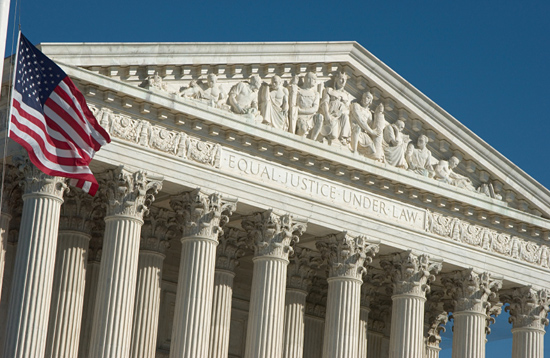 By Michael Doyle and David Lightman, McClatchy Newspapers –
By Michael Doyle and David Lightman, McClatchy Newspapers –
WASHINGTON — The Supreme Court on Wednesday sounded out the notion that most of a major health care law could survive even if its most controversial provision were struck down.
On the third and final day of historic oral arguments, justices revealed another sharp split; this time, over the idea of potentially severing one part of the law from the rest. At least some of the court’s conservatives seem prepared to kill the whole bill.
“My approach would be, if you take the heart out of the statute, the statute is gone,” Justice Antonin Scalia declared.
From the other side, Justice Elena Kagan suggested that often “half a loaf is better than no loaf,” while some of her colleagues agreed that the court should not move too drastically.
“It’s a question between a wrecking operation and a salvage job,” Justice Ruth Bader Ginsburg said, “and it seems to me the more conservative option is the salvage job.”
The possibility of retaining some if not all of the health care law offers some solace to advocates who fear the court could strike down as unconstitutional the law’s hot-button requirement that individuals buy insurance or pay a penalty.
The 90-minute argument Wednesday morning would really only matter if the court decides, separately, that the health care law’s so-called individual mandate violates the Constitution. At that point, justices also would have to decide whether the damage to the law can be contained or whether the whole ship must necessarily sink.
“If the individual mandate is unconstitutional, then the rest of the act cannot stand,” insisted attorney Paul Clement, representing Florida and other states challenging the law.
But with many provisions of the 2,700-page Patient Protection and Affordable Care Act already in effect, advocates maintain that total repeal would throw businesses and individuals for a dangerous loop.
Twenty-six different provisions took effect in 2010, the law’s first year, and 17 went on the books last year, according to the Kaiser Family Foundation. Nine new provisions are taking effect this year.
“(There is) all kinds of stuff in there,” Justice Stephen Breyer said, adding that “they can stand on their own.”
Lawmakers designed the phase-in, in part, with the thought that the public would become more supportive of the law once certain provisions began to take hold.
Among the most popular is a temporary program to provide health care to people with preexisting conditions who have lacked coverage for at least six months. Another popular provision, which took effect in September 2010, allows parents to keep children on their insurance policy up to age 26.
“Think of the millions of Americans whose children are on their parents’ policies,” said Sen. Tom Harkin, D-Iowa, the chairman of the Senate Health, Education, Labor & Pensions Committee, at a news conference Tuesday outside on the U.S. Capitol grounds. “They’ll take away this benefit for them?”
The law also has already provided some $1 billion for community health centers. Even Senate Republican Leader Mitch McConnell of Kentucky, who insists he will try to repeal the health law given a chance, conceded that “there are a couple of things that you’ll be able to point to” in the sweeping law that might be popular.
Distinctly unpopular in some circles, the health care law requires that taxpayers obtain at least a minimum level of health coverage by 2014. With some exceptions, the uncovered must pay annual fees that start at $95 in 2015 and rise to $695 by 2016; alternatively, the fee may be set as a percentage of household income.
Sharp questioning from justices Tuesday made clear that the court is narrowly divided on this so-called individual mandate, with conservative members prepared to strike down the provision as exceeding Congress’s constitutional authority.
On Wednesday, Chief Justice John Roberts, Jr. and Justice Anthony Kennedy both pressed questions about how the rest of the law can keep standing if the heart were removed.
The Obama administration agrees that a few additional provisions of the law are inextricably tied to the individual mandate and must live or die with it. One is the ban on denying coverage to those with preexisting conditions. Without an individual insurance-buying mandate, this requirement would drive up rates.
Most other provisions, though, can operate independently of the individual mandate, Obama administration officials say.
A decision in the case is expected by the end of June, when the court ends the term that began last October.







